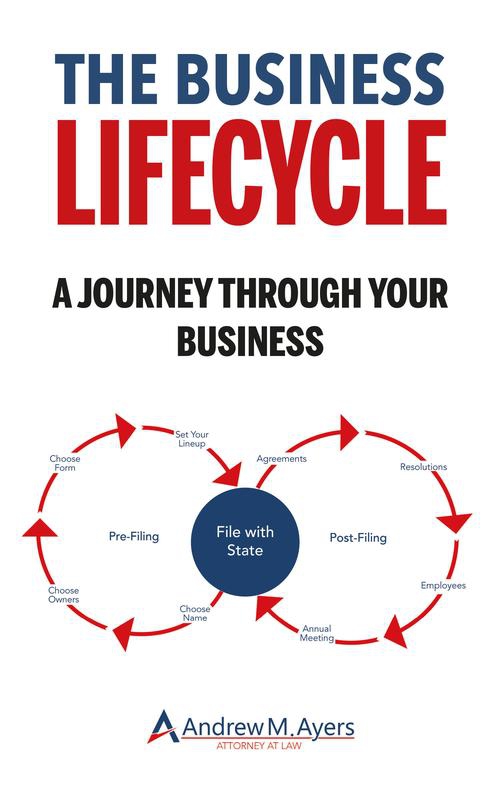 For many small business owners, when they started their company they immediately considered using an LLC. With all of the protections it offers people who start a business, it's a very common first step. But what if you own a rental property in Minneapolis? Maybe it was a starter home that you are renting out to friends or maybe you've got a nice piece of vacation property in Northern Minnesota that you rent out in the tourist season? Or as commonly happens, maybe you inherited the property from your family and wanted to keep it and rent it out.
For many small business owners, when they started their company they immediately considered using an LLC. With all of the protections it offers people who start a business, it's a very common first step. But what if you own a rental property in Minneapolis? Maybe it was a starter home that you are renting out to friends or maybe you've got a nice piece of vacation property in Northern Minnesota that you rent out in the tourist season? Or as commonly happens, maybe you inherited the property from your family and wanted to keep it and rent it out.
While you may not think of it as a business, your rental property is likely a good candidate to be placed into an LLC. If you were to dig deeper into real estate investors, you would find that the most successful ones own their properties in companies like LLC's. The more complex real estate planners may even have an LLC for each property they own, with another umbrella LLC that is the owner of all of the individual LLC's. While your real estate empire does not need to be this complex, it's often a good idea to see if your property should be in an LLC.
An LLC Protects Your Personal Assets from Liability
One of the primary reasons that people form an LLC is to protect their personal assets from liability. If they are starting a business, they want their business liability to be limited to the assets in the business. When you own a rental property, an LLC can be used in a similar fashion. By creating an LLC for each property, you limit the liability for that property to the value of that property alone. If you are sued by a tenant, one of their guests, someone else on the property (even someone who may be trespassing and gets injured), their recovery in a lawsuit would be limited to the value of the property in the LLC.
When you don't use an LLC to own a property, if you are sued as the owner/landlord, your personal assets could be on the line to pay off a judgment against the property. That could include taking money from your bank accounts or even garnishing your paycheck from your employer.
As a further bonus, the LLC can also be used to protect your privacy. If you don't name your LLC "The John Smith Rental Property LLC", then the tenants won't know who the real owners are. You can have some fun naming the LLC and then, if the property does get involved in a lawsuit, it's the LLC, not you, who gets to deal with the lawsuit and the lawyer can be the person who has to deal with it because companies can't represent themselves in court. And if you really want to stay anonymous, when you set up the LLC, you can use a registered agent with the state so that no one truly knows who owns the LLC.
It's Easier to Transfer the Property
Unlike your house, which you likely own personally, if your property is owned by an LLC, you don't have to go through the formal "closing" and the steps that are required to transfer the property. Instead, you can actually transfer the ownership of the LLC, which is a much easier process. You don't need to hire an attorney to draft a new deed for the property and file it with your local property registrar.
This is one of those areas where business law and estate planning overlap - you can use the LLC as a tool in your estate plan to keep family property in the family without dealing with the probate court when you die. The various options you have on the estate planning side of things are far beyond this blog post, but if you've got a family cabin you'd like to keep in the family, an LLC may provide a streamlined way to achieve that goal.
Tax Benefits of the LLC
When you create an LLC, it's common that you're doing it for the tax advantages that come with it. This part of the equation is where I always encourage you to speak to your accountant and financial advisor to be sure that the LLC is the right vehicle for your investments. Assuming it is, the LLC provides for a different tax rate than your normal income and is taxed at a different rate than a traditional corporation. Utilizing the LLC, you can use the rental income that it receives to reinvest it into the property to create even more value - you can essentially have an LLC that pays for itself and you don't have to worry about declaring all that rental income on your personal taxes each year.
There can be other reasons why you would want to consider an LLC to own your rental property, but these are a good place for you to start.
Next Steps
If you've got rental property in Minnesota and are ready to get started transferring it into an LLC, or you are getting ready to purchase a property and want to discuss the process further, let's set up a Legal Strategy Session to review the best options for you.


